You’ve seen the Burj Khalifa. You’ve walked through the Mall of the Emirates. You’ve scrolled past photos of golden yachts and private islands. But have you ever wondered who actually owns most of it? The answer isn’t a corporation. It’s not a tech startup. It’s a family-the Al Maktoum family.
The Al Maktoum Family: Dubai’s Hidden Empire
The Al Maktoum family isn’t just rich. They’re the reason Dubai exists as we know it. Since the early 1800s, they’ve ruled the emirate. Today, they control the majority of Dubai’s land, infrastructure, and commercial assets. Their wealth isn’t just in bank accounts-it’s in skyscrapers, airports, ports, and entire districts like Dubai Marina and Downtown Dubai.
Think of Dubai’s skyline as a giant puzzle. Almost every major piece was placed by the Al Maktoums. The Dubai World Trade Centre? Built by their investment arm. The Dubai International Airport expansion? Funded by their holding company. Even the land under the Palm Jumeirah? Owned by the family through Dubai Properties Group.
Unlike billionaires in Silicon Valley who built fortunes in software, the Al Maktoums built theirs on dirt. Literally. Real estate isn’t just one of their businesses-it’s their entire foundation. They don’t just invest in property. They create entire cities from scratch.
Why Real Estate Is the Key to Their Wealth
Dubai’s economy doesn’t run on oil anymore. It runs on land. And the Al Maktoums own the most valuable pieces.
Here’s how it works: The government (controlled by the family) grants long-term leases-often 99 years-to developers. These developers build luxury towers, malls, and hotels. Then they sell units to investors. But the land? Still owned by the family. Every time someone buys a penthouse in Business Bay, the Al Maktoums collect rent through land fees, service charges, and development royalties.
They also own Dubai Holding, which controls Dubai Properties, Nakheel, and other major real estate firms. Nakheel alone developed the Palm Islands, Dubai Marina, and The World archipelago. These projects cost tens of billions. The family didn’t borrow money to build them-they used sovereign wealth and future land sales as collateral.
There’s no public record of their net worth, but experts estimate their collective fortune exceeds $150 billion. That’s more than the GDP of countries like Croatia or Sri Lanka. And it’s almost entirely tied to real estate.
Who Else Is in the Running?
Some people think the Al Nahyan family from Abu Dhabi is richer. They are-by total assets. But Abu Dhabi’s wealth is mostly in oil and sovereign funds. Dubai’s wealth is in bricks, mortar, and sky-high rents.
Other names pop up: the Al Ghurair family, who own Mashreq Bank and major retail chains. Or the Al Habtoor family, with luxury hotels and car dealerships. But even their combined wealth doesn’t touch the Al Maktoums’ real estate empire.
Here’s the key difference: Other families built businesses. The Al Maktoums built the stage those businesses perform on.
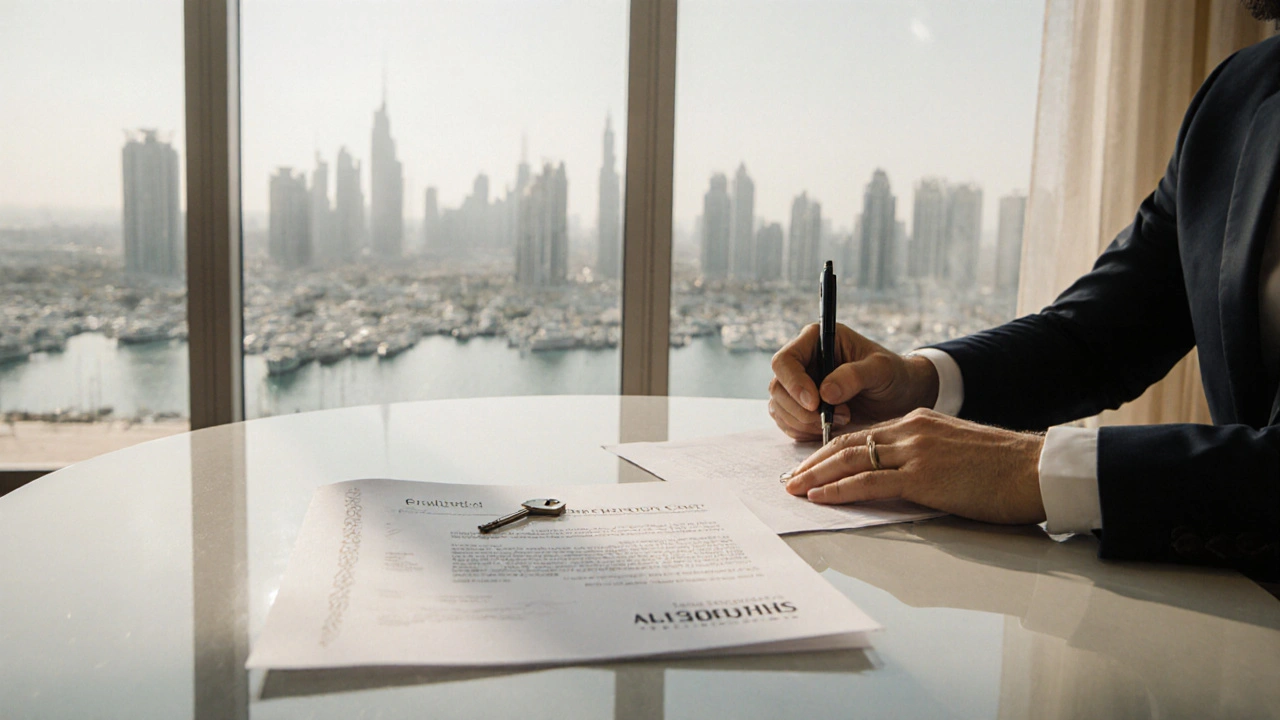
How They Keep Control Without Being Seen
You won’t find Sheikh Mohammed bin Rashid Al Maktoum on Forbes’ billionaire list. Why? Because he doesn’t need to. He’s the Ruler of Dubai. His wealth isn’t personal-it’s institutional. The family’s assets are held through state-owned entities, trusts, and foundations that aren’t required to disclose financials.
They don’t need to. Their power comes from control, not visibility. The Dubai Land Department? Run by the family. The Real Estate Regulatory Agency? Appointed by them. Even the rules that let foreigners buy property? Designed by them to attract global capital-while keeping the underlying land value in family hands.
This is the real secret: They didn’t get rich by selling property. They got rich by making sure no one else could ever own the land underneath it.
What This Means for You
If you’re thinking about buying property in Dubai, here’s the truth: You’re not buying from a developer. You’re leasing from the Al Maktoums.
Even if you own a freehold apartment in Downtown Dubai, the ground beneath it? Still owned by Dubai Properties, which answers to the ruling family. Your title deed gives you rights to the building, but not the land. That’s why you pay annual service charges. That’s why your property value is tied to Dubai’s overall growth-and the family’s development plans.
That’s also why property prices in Dubai keep rising. Every new project they launch-like the upcoming Dubai Creek Tower or the expansion of Dubai South-increases demand for surrounding land. And since they control the supply, they control the price.
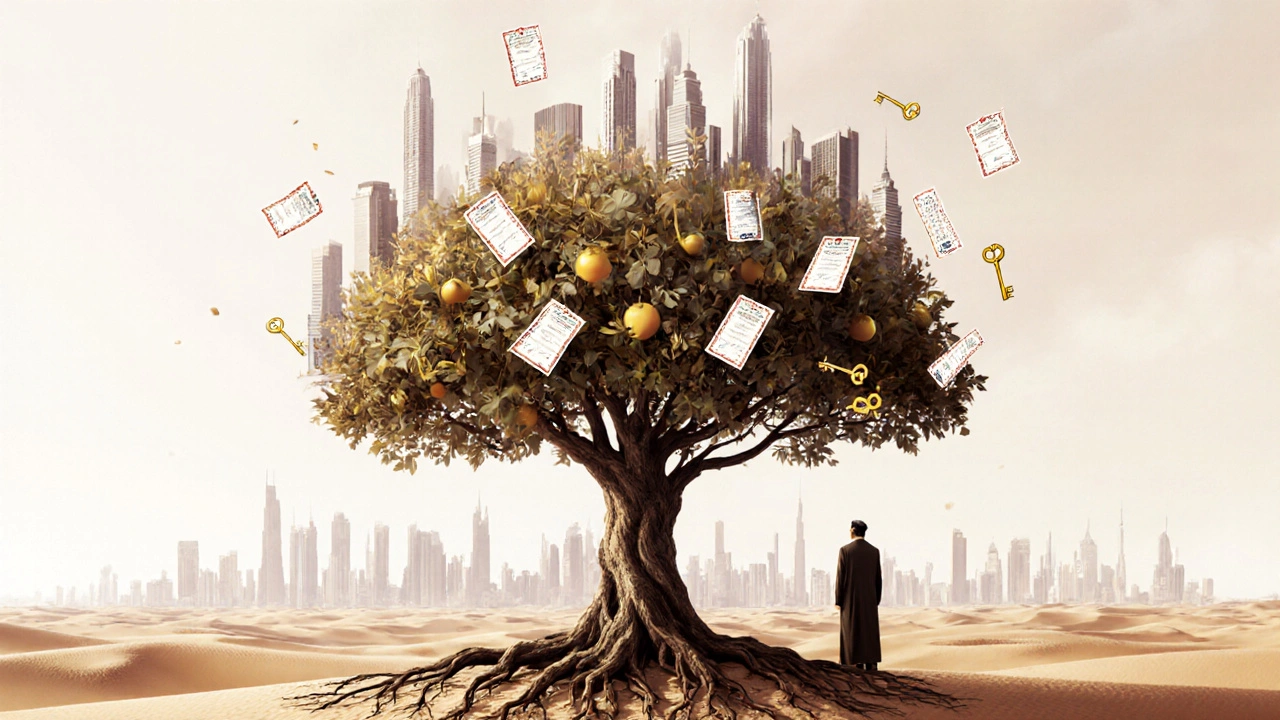
The Bigger Picture: Why Dubai’s Model Is Unique
Most cities grow organically. Dubai was planned. Every street, every tower, every beach was designed by the Al Maktoums to serve one goal: attract global money and keep it flowing in.
They didn’t wait for investors to come to them. They built the dream first-then sold tickets to it. The result? A city that’s 85% foreign-owned in terms of property, but 100% controlled by one family.
There’s no other city in the world where a single family owns the majority of prime real estate, runs the government, and sets the rules for foreign investment. That’s why Dubai isn’t just rich-it’s a one-family economy.
What’s Next for the Al Maktoums?
The next phase isn’t just about building more towers. It’s about digital real estate. The family is investing heavily in blockchain-based land registries, virtual Dubai in the metaverse, and AI-driven urban planning. They’re betting that the future of wealth isn’t just in physical space-but in the digital copies of it.
They’re also expanding beyond Dubai. Through Dubai Holding, they’ve bought stakes in real estate projects in London, Paris, and even parts of the U.S. But their heart is still in the desert. That’s where their power began-and where it will stay.
Final Thought: It’s Not About Money. It’s About Legacy.
The Al Maktoums didn’t become the richest family in Dubai by luck. They did it by playing a 200-year game. While others chased short-term profits, they bet on land, time, and control.
If you ever stand on the observation deck of Burj Khalifa and look out over the city, remember: Every light you see? Someone else owns the apartment. But the ground beneath it? Still theirs.
Is the Al Maktoum family the richest in the UAE?
Yes, in terms of real estate control and long-term wealth generation within Dubai, the Al Maktoum family is the richest. While the Al Nahyan family of Abu Dhabi holds more total assets through oil wealth and sovereign funds, the Al Maktoums’ wealth is more concentrated in physical, income-generating property within Dubai’s rapidly growing economy.
How do the Al Maktoums make money from real estate?
They don’t sell the land. They lease it-often for 99 years-to developers and buyers. Every time someone buys a property, rents it, or sells it, the family collects fees, service charges, and land royalties through state-owned companies like Dubai Properties and Nakheel. Their income comes from the constant flow of transactions on land they own.
Can foreigners own land in Dubai?
Foreigners can own property in designated freehold areas like Dubai Marina, Palm Jumeirah, and Downtown Dubai. But they don’t own the land underneath. The land remains owned by the government (controlled by the Al Maktoum family). What you buy is the right to use and sell the building for a set period, usually 99 years.
Why doesn’t Forbes list the Al Maktoums as billionaires?
Because their wealth isn’t held in personal bank accounts or publicly traded stocks. It’s locked in state-owned entities, trusts, and sovereign funds that aren’t required to disclose financials. Forbes can’t estimate what they can’t see. Their power comes from control, not public balance sheets.
Is Dubai’s real estate market stable if the Al Maktoums control everything?
Yes-because their interest is in long-term growth, not quick profits. They need a thriving property market to attract global investment. That’s why they’ve created clear rules, transparent regulations, and world-class infrastructure. Their stability comes from having everything to lose if the market crashes.

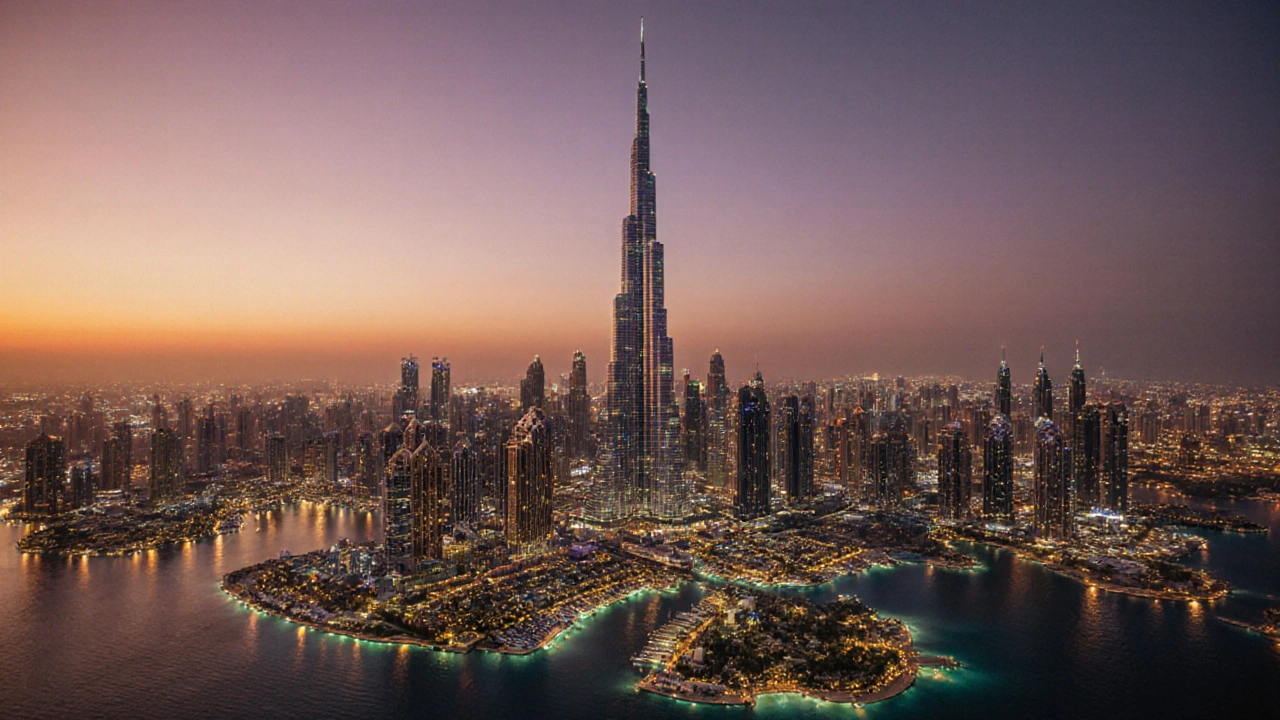
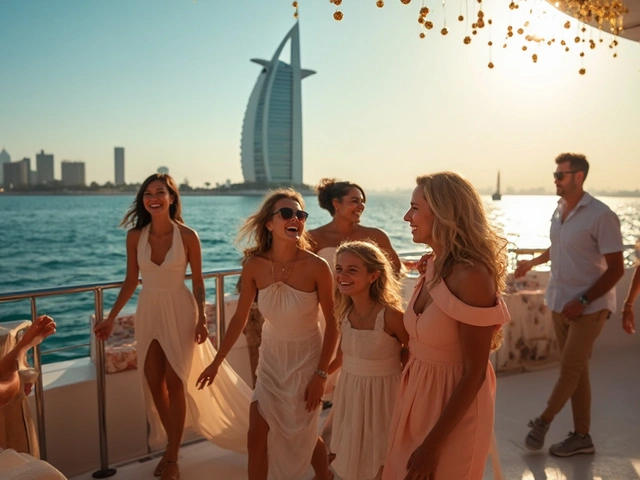
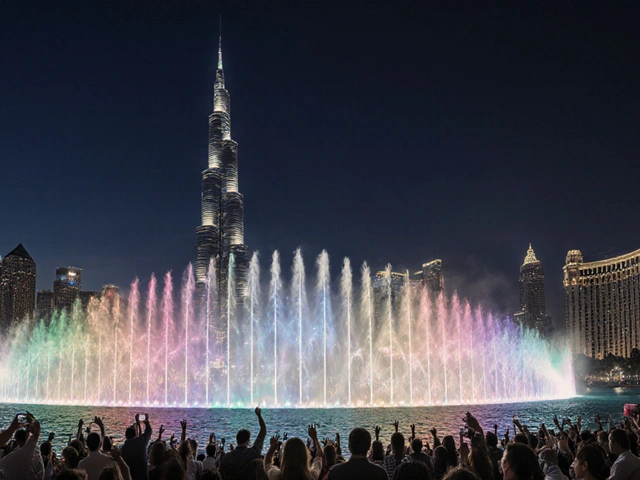
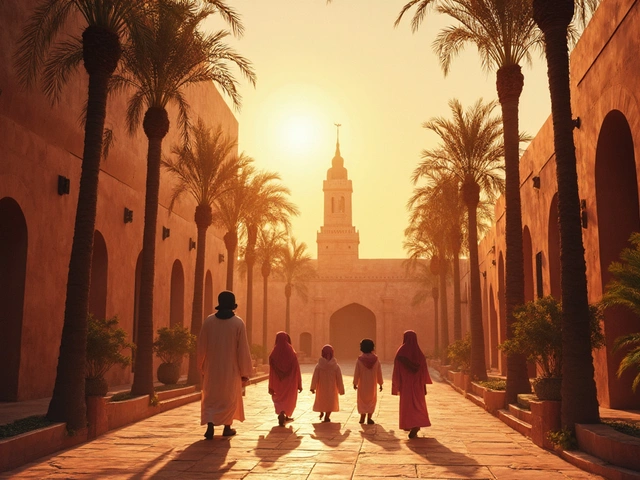
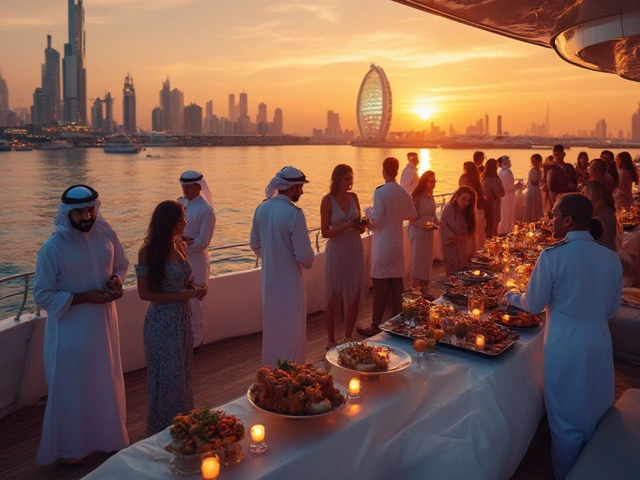
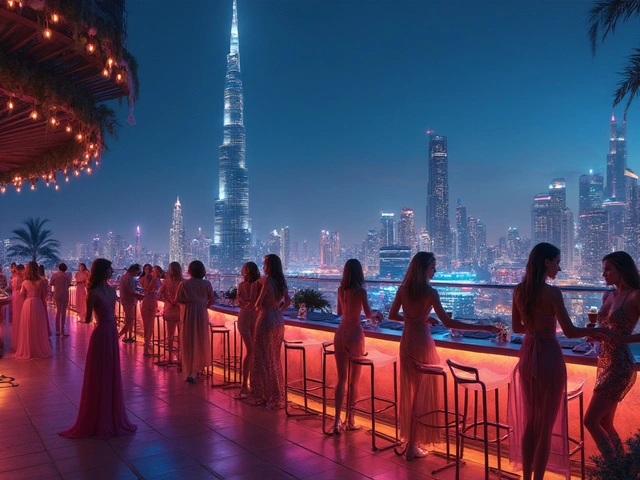
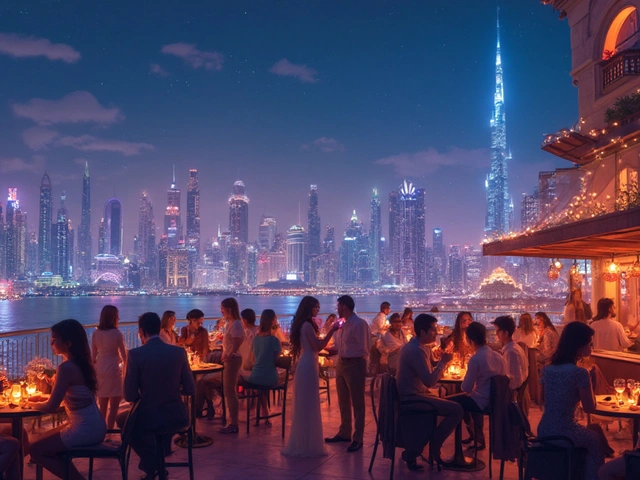
Aaron Brill
November 5, 2025 AT 00:54So they just own the dirt and charge rent forever? That’s wild.
Aarushi Das
November 6, 2025 AT 00:00How utterly predictable-another ‘hidden empire’ narrative that ignores the structural violence of colonial land tenure repackaged as ‘smart capitalism.’ The Al Maktoums didn’t ‘build’ Dubai; they inherited a fishing village and weaponized legal loopholes to monopolize space while exporting the myth of meritocracy. And don’t get me started on the migrant laborers who actually constructed these towers, living in labor camps while billionaires collect rent on their sweat. This isn’t wealth-it’s institutionalized theft dressed in Armani.
Vinny Cuvo
November 7, 2025 AT 09:58lol the al maktoums r so rich they dont even need to show up on forbes? yeah right. also ‘dirt’? more like sand and scams. how’s that 99yr lease work when the sand blows away? 🤔
Daron Noel
November 9, 2025 AT 05:33Wow. So the richest family in Dubai is… the government? That’s not a family. That’s a corporate entity with a royal title. This whole post reads like a Dubai Tourism brochure written by someone who thinks ‘sovereign wealth’ is a personality trait.
Jaco Steenberg
November 10, 2025 AT 05:25I love how Dubai just… exists as this glittering dream built on pure vision. I mean, imagine turning desert into paradise-without oil? That’s not just smart, that’s genius. And yeah, sure, the land is technically owned by the family, but look at what they gave back: jobs, global connections, innovation. People forget that real wealth isn’t just cash-it’s opportunity. And Dubai? It’s giving that to millions. 🌍✨
sooraj Yadav
November 11, 2025 AT 17:42INDIA COULD DO THIS TOO!!! 🇮🇳 We have 1.4 billion people and still let foreigners buy land in Dubai?? We should nationalize all property and make Modi the new Al Maktoum! 🚀👑 #MakeIndiaGreatAgain
Amanda Vella
November 11, 2025 AT 23:20Someone please tell me this isn’t real. A family controlling an entire city’s soul like some medieval lord? I’m not just unsettled-I’m traumatized. Who gave them the right to decide who gets to live under their sky? I need to go cry in a yoga studio now.
Jade Sun
November 13, 2025 AT 04:43It’s fascinating how systems evolve. The Al Maktoums didn’t just accumulate wealth-they created a sustainable model that attracts global capital without relying on finite resources. That’s not control, that’s stewardship. And yes, the land is theirs, but the city belongs to everyone who contributes to it. Maybe the real question isn’t who owns the dirt-but who’s building something meaningful on it?
Utkarsh Singh
November 13, 2025 AT 20:03Stop. The word is ‘mortar,’ not ‘morter.’ And ‘Al Maktoum’ has two T’s. This whole article is a grammatical disaster. Also, no one owns ‘dirt.’ It’s soil. Learn the difference.
Lizzie Fieldson
November 14, 2025 AT 01:29Okay but what if the Al Maktoums are just really good at PR? Like what if they’re not rich at all and this is just a giant distraction so we don’t notice the real power players behind the scenes? Also I heard the Burj Khalifa is haunted by construction workers and the family pays them in expired visa stamps